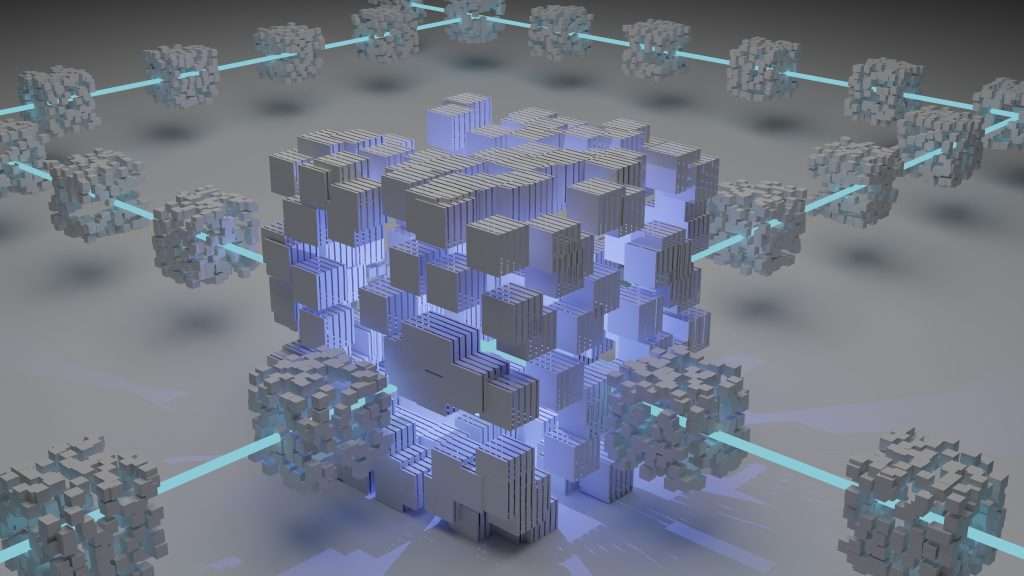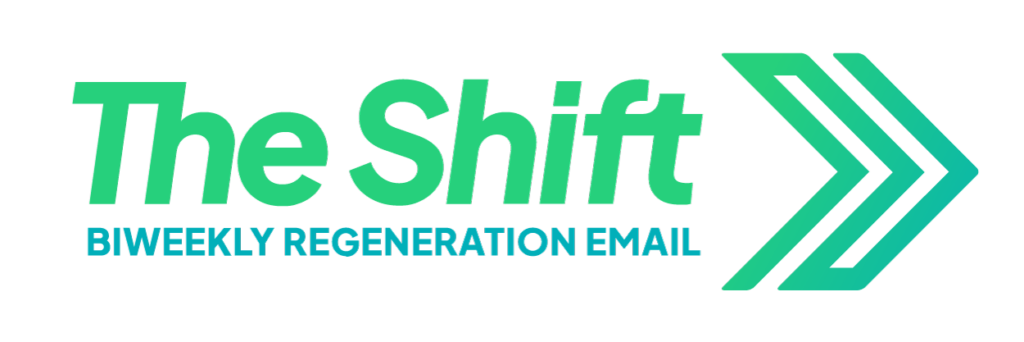As we develop our eye for an enlightened future, a new way to structure our culture has emerged.
It’s called decentralization, and it suggests that moving power and decision-making to smaller factions or groups might just be the thing we’re looking for.
What decentralization looks like right now
Right now, we’re largely seeing this take flight in the tech space with blockchain.
- The blockchain is a decentralized ledger for public records, often (but not always!) used to track cryptocurrency transactions.
Inherently, blockchain isn’t centrally managed. Since there are thousands of computer systems checking and validating each transaction, there’s a higher level of trust that the information is correct.
- To learn more about blockchain and cryptocurrency, check out this cryptocurrency for beginners guide.
And that’s where the value of decentralization lies: peer-to-peer consensus allows for aligned solutions to unique problems.

Illustration of the “blocks” that are “on chain” in blockchain technology. Photo by Shubham Dhage.
Past decentralization success story
One ancient Chinese community understood this concept well.
They built an excellent water and drainage system without a centralized authority, showing that relying on local minds to solve local problems can be a super practical way to get things done.
Click here to read their story
How decentralized communities are organized
In the tech world, a decentralized system uses peer-to-peer record-keeping and data tracking.
- This system provides inherent security since many participants have the power to verify data.
DOAs (Decentralized Autonomous Organizations) are one such type of community that allow common people to organize around common goals and access funding for important topics. Read more about DAOs.
Independence can breed antifragility
Decentralized communities can usually maintain basic levels of need independently, including:
- Food production
- Communal relations
- Land and resource use
It’s this independence that has the possibility to make them more resilient to sudden catastrophic events like a varying climate. And it’s possible for them to be more resilient than some communities that depend heavily on the stability and strength of one central sphere of management.
The future of decentralization
However, we’re still figuring this whole thing out. After all, Kevin Owocki, founder of Gitcoin, mentioned at the 2023 ReFi Summit in Seattle that it might be best to stick to centralized systems that are well-established and functioning while we collectively figure out when to do decentralization and how to do it well.
For decentralization to get where it’s going, there’ll be plenty of trial and error. And the future will likely be a framework of blended decentralization alongside centralized institutions and communities.
The hope is that as we move forward we’ll be able to expand our repertoire of how we organize our institutions, which will in turn allow people and communities to build with deeper resilience and intention.
